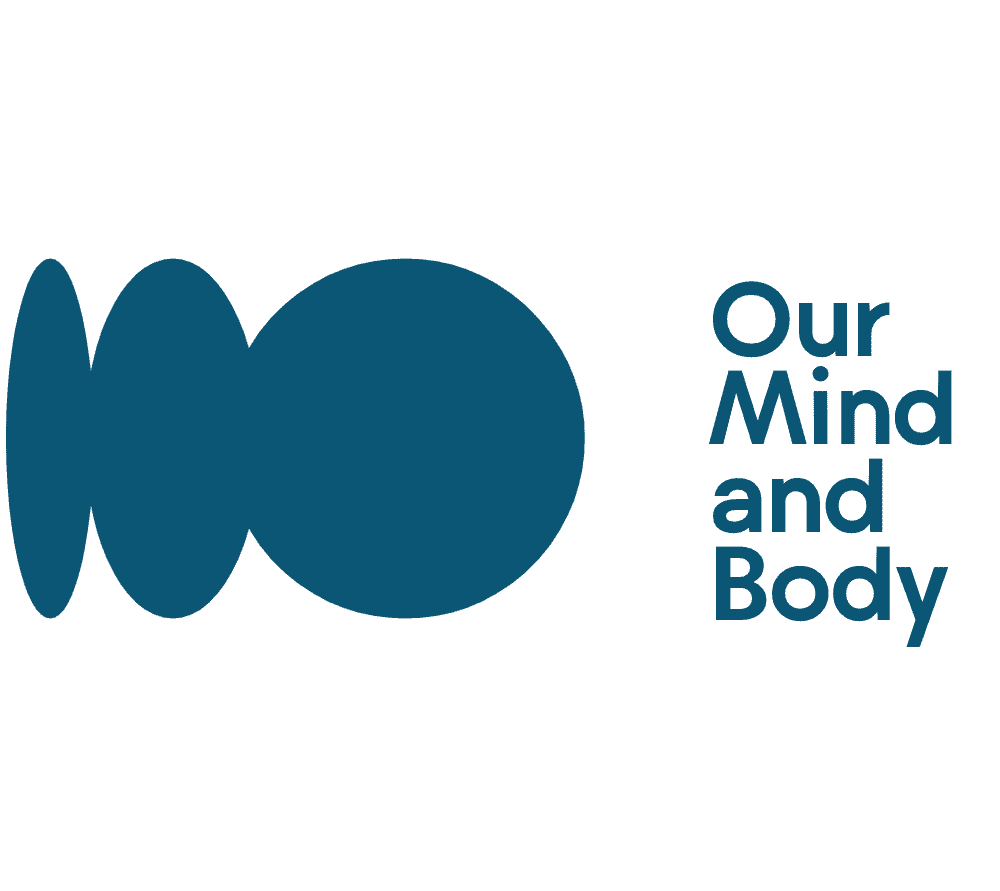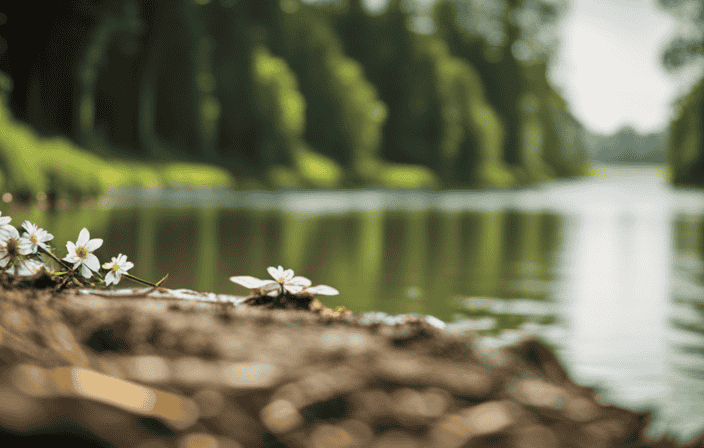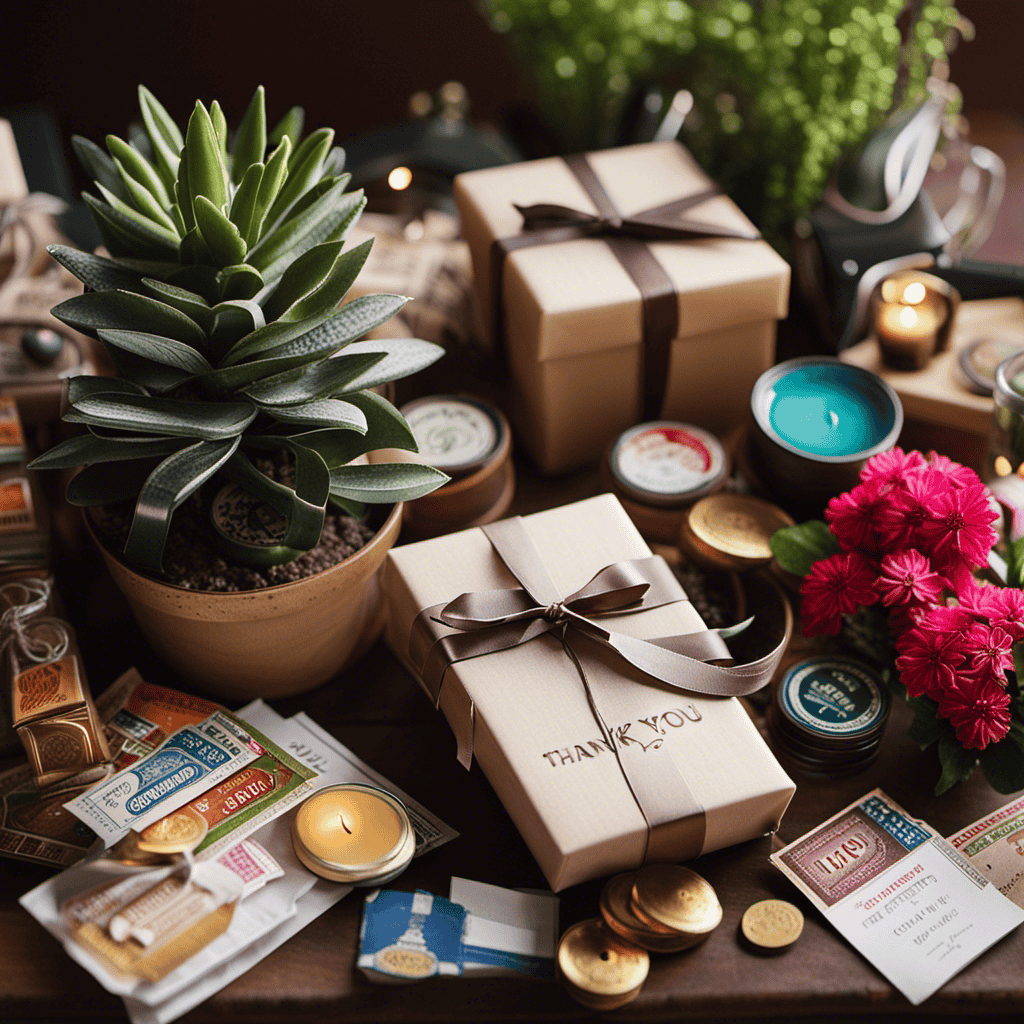Personal Growth
Navigating Heartbreak: Embracing Emotions to Heal and Move Forward

Breaking up is similar to a glass shattering into pieces—it comes as a surprise, and the aftermath can feel overwhelming. It’s crucial to acknowledge your emotions during this time, accepting both the positive and negative feelings as essential components of the healing process. Allow yourself to feel sadness and give yourself permission to mourn the loss; feeling down after a breakup is completely normal. Avoid trying to ignore or suppress these emotions by keeping yourself busy. Instead, take a moment to reflect on your feelings and validate whatever emotions arise within you. Allow yourself to experience all of them, using them as a roadmap to help you move forward from the grieving process.
Moving On From Grief
It is natural to feel grief after a break up. You may be feeling overwhelmed with emotions, and that’s okay. It is important to acknowledge those feelings of loss so you can work through them in an effective way. But it is also essential to recognize the need for healing and moving forward. The end of a relationship doesn’t have to mean the end of your life; rather, it can signify the start of something new and different.
The first step towards overcoming grief requires acceptance – accepting both your emotions and the reality of what happened. This means allowing yourself time to grieve while recognizing that this process will take as long as it needs, without rushing or pushing away any powerful emotions that arise during this period. Part of accepting loss involves understanding that negative thoughts about yourself are normal but not necessarily accurate reflections on who you really are; part of rebuilding your life includes learning how to practice self-love again.
Another key component in grief recovery is developing healthy coping mechanisms such as exercise, meditation, journaling, spending time with friends or family members who offer support, seeking professional help if needed, etc… As you actively engage in these activities and make progress along each step of your path to healing, remember: even though it might seem difficult now – there will come a day when you look back at this experience from a place of growth instead pain. Everyone’s journey looks different; focus on taking actions that bring joy and peace into your life every single day until happiness becomes part of your daily routine once more.
No matter what happened between two people during their relationship together, no one deserves blame nor shame for its ending – understanding that it’s not your fault is an integral piece in the puzzle of reclaiming balance within yourself once more.
Understanding That It’s Not Your Fault
When a relationship ends, it can be easy to blame yourself or your former partner. It is important to remember that breakups are often the result of two people making different decisions and both parties have an equal share in the outcome. Even if one person has done something wrong, they may not be entirely at fault for the end of the relationship. When you understand this, it will help you release feelings of guilt and self-blame.
The next step is learning to forgive yourself for any mistakes made during the course of your relationship. This process involves understanding where things went wrong but also recognizing that we all have our own unique perspectives and experiences which shape how we interact with others. Forgiveness does not mean forgetting what happened or excusing someone’s behavior; rather, it means letting go of anger and resentment so that you can move forward without feeling weighed down by past events.
It takes time to learn from a breakup but by taking responsibility for your part in it while also being kind to yourself, you can start on a path towards healing and growth. As difficult as it may seem right now, embracing these lessons will ultimately open up new opportunities for personal growth and connection with others in the future. With self-acceptance comes peace of mind—and sometimes even joy—as well as greater clarity about who you are and what makes you truly happy. From here, learning how to forgive becomes possible.
Learning To Forgive
Learning to forgive is a critical part of the healing process following a break up. It’s an emotional journey that requires us to confront our pain and come face-to-face with our own capacity for self-forgiveness. To start, it’s important to recognize that forgiveness isn’t about condoning their actions or absolving them of responsibility; rather, it involves recognizing your inner hurt and cultivating compassion in order to move forward.
To help you on this path, here are some tips:
- Forgiving yourself:
- Acknowledge that feeling hurt is normal.
- Don’t be hard on yourself if feelings linger even after forgiving the other person involved.
- Forgiving others:
- Focus on understanding why they acted as they did instead of judging them.
- Remind yourself that everyone makes mistakes – including you!
Remember, forgiveness takes time and practice – you don’t have to rush into anything before you’re ready. While challenging at times, taking this step can help open up doors of self-discovery and growth that may ultimately lead to true peace and joy within yourself. With this newfound sense of freedom from resentment, we can finally begin embracing change without fear or hesitation.
Accepting Change
Learning to accept change is a key life lesson that can be learned from a break up. Change often brings about opportunities for growth and self-reflection, so it’s important to learn how to embrace transformation as opposed to trying to fight it.
Embracing Transformation Adapting To Shifts Recognize the benefits Be open minded See the potential Allow yourself space Let go of fear Remain flexible Accept newness Take one day at a time
When dealing with changes in your life after a break up, it’s important to recognize the potential benefits these changes may bring. Try seeing them as an opportunity for something better than what you had before. You should also let go of any fears or anxieties surrounding this shift in order to make room for embracing unpredictability and welcoming growth within yourself. In addition, allow yourself some space and flexibility when adapting to shifts without feeling overwhelmed by them. By taking things one day at a time, you can slowly but surely adapt to whatever life throws at you.
By accepting change rather than fighting against it, we gain insight into ourselves and our relationships that allows us to appreciate ourselves more fully and live authentically no matter what comes our way. It’s essential that we start appreciating all aspects of who we are—including both our strengths and weaknesses—in order move forward in strength and courage through difficult times ahead.
Appreciating Yourself
When going through a break up, it is important to take the time to appreciate and love yourself. Acknowledging your worth and value will help you heal from the pain of the break-up and move forward in life. Here are some key points for self-appreciation:
-
Self-Love: It is essential that you practice loving yourself during this difficult time. Take care of yourself by doing activities that make you happy, such as reading a book or taking a walk. Recognize that no one can provide unconditional love like you can for yourself.
-
Self-Respect: Treating yourself with respect is just as important as respecting those around us. Make sure to set boundaries when needed instead of always giving into what others want from you; this helps foster self-respect.
-
Self-Value: Valuing who you are and all that you bring to relationships is paramount in healthy living. Celebrate your accomplishments, both big and small, without being too hard on yourself if things don’t go according to plan every once in awhile–this builds confidence in oneself!
-
Self-Worth: Develop an understanding of how valuable and worthy you are so that other people’s opinions do not define who you are or the choices that you make in life. Believe in your capabilities and focus on building up your strengths rather than trying to fix weaknesses; this will increase feelings of self-worth significantly over time.
By focusing on these areas, we can develop healthier perspectives about ourselves which will lead us towards practicing self-care more regularly
Practicing Self-Care
Breaking up can be an incredibly difficult time, but it doesn’t have to define you. You may feel like your life is crumbling around you, and that is normal – but it’s also important to remember the importance of self-care during this period. Practicing self-care helps us rebuild our strength and resilience so we can face each day with a sense of purpose and hope.
It starts by understanding what self-care looks like for you. Self-care activities vary from person to person, and might include anything from going for a walk in nature, taking some deep breaths or meditating, journaling about your feelings, engaging in creative pursuits such as painting or crafting, or listening to music that lifts your spirits. It could even mean having a relaxing bubble bath at home! Whatever works best for you should become part of your regular routine; these are just some examples of how to practice self-care on a daily basis.
Taking care of yourself requires effort – especially when life has been turned upside down – but it’s worth investing in yourself if it means feeling more balanced and secure within yourself again. Regularly reassessing your priorities is key here; ask yourself what really matters right now? What do I need to focus on first? By doing this regularly, you will gain clarity on where your energy needs to go while letting go of those things that don’t help progress through this tough time.
Reassessing Your Priorities
Breakups can be difficult, but they also present an opportunity to reassess your priorities and discover what matters most. Leaving a relationship is often the first step in identifying needs that may not have been met while you were together. It’s important to prioritize self-care during this time as you learn more about yourself and identify values that are essential for any future relationships.
Reassessing Priorities Prioritizing Self-Care Identifying Needs/Values Examine past decisions Take time for yourself Focus on strengths Reflect on experiences Invest in hobbies Respect boundaries Set realistic goals Connect with friends Nurture independence
Cultivating joy in life even when faced with adversity will help you grow from the experience of a breakup. Making healthy choices each day such as getting enough rest, engaging in meaningful activities and eating nutritious foods will give strength to cope with emotions related to the end of a relationship. By taking care of yourself, it becomes easier to recognize what is truly valuable and move forward into the next chapter of life feeling empowered.
Growing From Experience
A break up can be a difficult experience, but it doesn’t have to be all bad. In fact, there are many valuable lessons that you can learn from such an emotionally challenging situation. Here are the top ten life lessons you can take away from a break-up:
-
Personal Growth: Going through a breakup is often associated with self-discovery and personal growth. It encourages us to look inwardly at ourselves and our relationships in order to better understand how we deal with emotions, communication styles, conflict resolution, and other important aspects of healthy relationships. Additionally, going through this process teaches us more about ourselves and what type of relationship dynamics work best for us as individuals.
-
Emotional Growth: Sometimes pain leads to progress – when we go through heartache it forces us out of our comfort zone and into a place where we must make conscious decisions regarding our emotional well-being. We emerge stronger and wiser on the other side if we choose to use the opportunity for meaningful reflection rather than wallowing in negative feelings or seeking revenge.
-
Healthy Communication: A breakup allows us space to practice using effective communication techniques like expressing needs clearly instead of expecting others to read between the lines; being direct without attacking; setting boundaries without creating ultimatums; remaining aware of nonverbal cues; listening actively; and developing empathy for one another’s perspectives even when opinions differ significantly.
By learning these lessons during times of hardship, we become better equipped to live healthier lifestyles moving forward by building strong connections with those around us while still having respect for ourselves first and foremost.
Building Healthy Boundaries
Transitioning from the previous section about growing from experience, it is important to understand how to build healthy boundaries. Setting limits and creating a safe space for yourself can help you survive break-ups with your dignity intact. Like building a sturdy wall around our hearts, we need to learn how to erect protective structures within ourselves.
The first step in constructing these vital walls of self-preservation begins with understanding what boundaries are and why they exist. Boundaries act as signposts that let others know where their behavior starts and stops; they also give us insight into our own values and beliefs. By establishing clear limits early on in relationships, both parties will have an easier time navigating potential difficulties down the line – or even better, avoiding them altogether! That’s why having firm boundaries is key when it comes to managing heartbreak: It helps protect us against future pain by making sure we don’t get too close too soon.
When setting bounds for yourself, remember that there’s no one size fits all approach –– everyone has different needs and desires when it comes to intimate partnerships. So take some time to think about what works best for you in terms of emotional distance, communication style, physical contact expectations etc., then communicate those clearly with any partners you may have so that misunderstandings don’t occur further down the road. Having well defined personal guidelines is essential for maintaining your autonomy during tough times like break ups, so make sure that your unique set of rules are respected by anyone who enters your life!
Learning how to create effective barriers around our hearts while still allowing connection is absolutely essential if we want to prevent repeat episodes of pain after a break up or disappointment in relationships overall. With this kind of guidance under our belts, we can move forward confidently towards recognizing red flags before they turn into full-fledged catastrophes…
Recognizing Red Flags
It’s important to recognize the red flags that indicate your relationship might not be healthy or fulfilling. When it comes to relationships, there are often warning signs and early indicators that can help you make decisions about whether to stay in a relationship or move on.
Here are some common red flags to look out for:
-
Communication Issues:
-
Conflict avoidance or lack of communication
-
One person dominates conversations
-
Unhealthy Behaviors:
-
Feeling like one partner needs to change who they are in order to fit into the relationship
-
Controlling behavior such as excessive checking-in or making unreasonable demands
If you notice any of these danger signals when assessing your relationship, then it may be time to consider breaking up with your partner. It’s also essential to pay attention to how you feel around them – if something feels off, trust your instincts! Taking stock of what is happening between you and your partner before considering a break up is key for understanding yourself and where things went wrong.
Focusing On The Positive
The previous section discussed recognizing red flags, but it is also important to focus on the positives as well. After a break up, life can seem dark and dreary, but there are lessons that you can take from the situation that will help you become stronger and wiser. It’s time to look for silver linings in what has happened and work towards developing a more positive mindset.
One of the best things that you can do after a break up is to acknowledge all of your progress. Celebrate where you have come from since then; whether it be learning how to love yourself or taking charge of your emotions. All these little successes should not go unnoticed! Appreciating yourself and looking on the bright side can really help get through this difficult period with grace and strength.
It’s natural to feel sad after a breakup, however focusing on the positives can give us an outlet during our healing process. Taking some time to heal and reflect will allow us to appreciate our growth while understanding why certain events happened in our lives. This newfound perspective will make it easier for us to move forward in life, feeling empowered by what we’ve learned about ourselves along the way.
Taking Time To Heal And Reflect
The end of a romantic relationship can be difficult, and it’s important to take the time you need to heal and reflect. Taking this time is an essential step in your emotional growth and self-development. Below are three key points for taking this time:
—Identify emotional triggers Point Description Action Steps Heal & Recover Allow yourself to feel all emotions while understanding that healing takes time. Acknowledge any pain or anger but work on letting go of negativity. Take care of yourself with restful sleep, healthy eating habits, physical activity, and mental stimulation. Look out for signs of depression such as lack of energy and changes in appetite. Seek professional help if needed. —Acknowledge your feelings
—Let go of negative thoughts
—Take care of your body
—Reach out for support when necessaryReflect & Reset Mindset Understand what happened in the relationship so you don’t repeat the same mistakes again. Evaluate previous decisions objectively without judgement or blame. Accept responsibility for actions taken by both parties, then forgive yourself and others involved. Make peace with the situation so you have closure before moving forward. —Analyze past events
—Accept responsibility
—Forgive yourself
—Seek closureEmotional Growth & Self Development Use this experience as an opportunity to learn more about yourself emotionally; understand why things unfolded how they did, recognize patterns from other relationships, identify areas where personal growth may be needed, and believe in your own worthiness for love and companionship. Find new hobbies that make you happy like painting classes or joining a book club! Strengthen existing relationships with friends and family members who offer unconditional love and encouragement throughout each stage of recovery including grief, loneliness, acceptance and hope.
–Explore new activities
–Strengthen social ties
–Believe in yourself again
Develop healthy and lasting relationships with friends and family members who offer unconditional love and encouragement throughout each stage of recovery including grief, loneliness, acceptance and hope.
Finding Closure
Breaking up can feel like the end of the world, but it is actually a new beginning. With every breakup comes an opportunity to find closure and start over with renewed hope for the future. Here are ten life-altering lessons you can learn from a break up that will help you move forward in your journey towards finding inner peace:
1) Letting Go – It may be hard at first, but learning how to let go of hurtful memories and grudges is essential for achieving closure. Letting go gives us permission to forgive ourselves and others, allowing us to heal our broken hearts and make room in our lives for something better.
2) Moving Forward – We all have had moments where we wish things could stay the same or even revert back to what they once were. A break up teaches us that life doesn’t stand still; it keeps moving forward no matter what happens. Learning how to embrace change and tackle obstacles head on helps build confidence and resilience which encourages successful outcomes.
3) Starting Over – After a break up, it’s normal to grieve and feel overwhelmed by sadness and regret. But instead of dwelling on what could have been, try embracing a fresh start as an opportunity for personal growth! Take this time to rediscover yourself; explore new hobbies, cultivate positive relationships and remember that there is always light after darkness if you choose to look for it.
4) Finding Closure – Before embarking on any closure process, take some time alone to reflect on everything that has happened since your relationship ended. Ask yourself open-ended questions such as “What did I gain from this experience?” or “How did my partner contribute positively into my life?” Doing so allows you acknowledge the good times while also understanding why certain things didn’t work out in order form healthier patterns in future relationships.
5) Being Kind To Yourself – After experiencing heartache or disappointment it’s important not beat yourself up about past mistakes or blame yourself for someone else’s actions. Instead focus your energy pn self love by engaging in activities that nurture your mind, body & soul such as yoga, journaling or taking walks in nature . This will ultimately lead to more clarity when seeking answers within yourself during tough times ahead..
6) Taking Responsibility – Break ups teach us valuable lessons about accountability which involves acknowledging our part in arguments or disagreements while also recognizing when its best to walk away gracefully without causing further damage either physically or emotionally Speaking directly yet compassionately brings forth resolution faster than harboring resentment ever would..
7) Appreciating Life– When going through a rough patch due difficult circumstances like a break up , remind yourself often of all the beautiful aspects of living including family friends pets music laughter sunsets etc These little reminders serve as necessary pick me ups helping keep perspective on all those amazing blessings that remain intact despite the stormy weather ahead ..
8 ) Embracing Vulnerability – Even though vulnerability can be scary especially when dealing with emotional turbulence know that reaching out for support from loved ones during vulnerable times only increases connection trust empathy respect intimacy patience kindness humility courage gratitude generosity forgiveness maturity spiritual awareness etc All these qualities become available whenever we allow ourselves space enough share honestly with another person ..
9) Forgiving Others – Forgiveness does not mean condoning wrong doings nor forgetting incidents occurred It simply means letting go of anger bitterness hatred pain sorrow guilt shame envy jealousy etc In doing so healing begins because now we can channel our energies towards releasing trauma creating less suffering within ourselves ..
10) Having Hope For The Future – No matter how dark days seem right now never lose faith in yourself You possess tremendous strength resiliency wisdom power potential beauty wit creativity courage imagination passion purpose talent gifts insight intelligence humor integrity honesty loyalty transparency And most importantly Love each one unique special unmatchable As long as these elements exist inside yours then anything outside becomes possible regardless of current conditions So keep believing hold onto hope keep pushing forward until breakthrough arrives !
Having Hope For The Future
Breaking up with someone can be a difficult and emotionally draining experience. But, it doesn’t mean that you’ll never find happiness again. Instead of focusing on the pain from the break-up, focus instead on having hope for the future. Developing a renewed optimism and positive outlook is essential to finding joy after a breakup.
The best way to have hope for tomorrow is to start looking forward rather than dwelling in the past. Take this opportunity to look at your life through a different lens and think about what goals you want to reach and how you can get there. Focusing on new aspirations will help bring clarity into your life and give you something else to strive towards other than just getting over an ex.
No matter what happened between the two of you, keep in mind that everyone has their own story, so don’t let yours define who you are or where you’re going in life. Let yourself heal from this relationship and take time to reflect on all that comes with it. By doing so, you’ll move away from feeling hurt by heartbreak and instead put more energy into seeking out opportunities for personal growth. It may not seem like much now but soon enough, these changes will help create space for a brighter future full of renewed optimism, positive outlooks and most importantly – hope for tomorrow!
Frequently Asked Questions
What Is The Best Way To Find Closure After A Break Up?
Breaking up is hard to do. Studies show that more than half of all people have experienced a break up in their lifetime, making it a universal experience. Finding closure after a break up can be difficult and often requires time, patience, empathy and understanding for yourself or your ex-partner. As a life coach or relationship counselor, I believe there are several ways to find peace after the pain of breaking up.
Firstly, self reflection is key when dealing with heartache from a former partner. Taking an honest look at why things didn’t work out between you two will help bring clarity and insight into what went wrong. Acknowledging any mistakes made on both sides will also bring about an opportunity for personal growth as well as allowing you to forgive yourself and move forward without guilt or regret.
Secondly, relying on friends and family during this turbulent time can provide much needed support while coping with pain. Listening to advice from those closest to you who understand the situation best could offer helpful perspectives that may not have been considered before which could lead towards discovering new solutions to the problem at hand. Additionally, having someone by your side who listens non-judgmentally can open doors to healing conversations that could bring greater relief and comfort in times of distress.
Lastly, taking good care of oneself should always be top priority when it comes to finding solace after a breakup. Whether through physical activities such as yoga or meditation or just simply setting aside time for restorative practices like journaling or going for nature walks – investing in one’s own wellbeing helps build resilience during dark moments so that no matter how tough these waters get weathered storms eventually give way to calmer seas ahead.
How Do I Learn To Forgive My Ex-Partner?
Learning to forgive your ex-partner is an important step in the healing process after a break up. It can be difficult to do, but it’s essential for allowing yourself to let go and move on. Here are some tips that I find helpful when guiding clients through this process:
-
Take time to reflect: When you take time out of your day to think about what happened between the two of you, you will begin to understand why things didn’t work out and how both of you were impacted by the relationship. This reflection allows for greater self-awareness and forgiveness as you gain insight into where things went wrong.
-
Focus on self-love: In order to truly forgive someone else, we must first learn to love ourselves again. Self-love includes doing activities that make us feel good physically and emotionally, such as exercising or journaling our thoughts and feelings. Taking care of yourself is one way to help rebuild the trust and sense of security within yourself so that you can eventually move forward with forgiving your ex-partner.
-
Communicate openly: Talking openly with your ex-partner can be beneficial if done in a respectful manner. Being able to express your emotions in a healthy way can allow each person involved in the break up to have closure while also giving them an opportunity to apologize or explain their actions from a new perspective; this helps promote understanding which leads towards forgiveness over time.
-
Find inner peace: Once all steps have been taken, focus on letting go of any lingering anger or hurt associated with the breakup by taking deep breaths, meditating, or engaging in other calming techniques like yoga or tai chi. Allowing yourself moments of stillness gives space for peace and understanding which is needed before true forgiveness can occur.
It may not happen overnight, but learning how to forgive takes practice and patience – just remember that it’s okay for there still be sadness without resentment attached afterwards! Allow yourself whatever amount of time necessary until you reach a place of acceptance – no matter how long it takes – because ultimately it’ll come back around full circle when you’re ready for it too; don’t rush it!
How Can I Practice Self-Care After A Break Up?
When it comes to dealing with the aftermath of a break up, self-care is essential. To help you cope during this difficult time and make sure that your emotional recovery is successful, here are some tips for post-breakup healing.
First and foremost, it’s important to recognize that taking care of yourself should always be your top priority. You can’t pour from an empty cup – so don’t forget to fill yours first! Taking the time to practice self-love will not only help you heal emotionally but also make sure that you’re in the best position possible for whatever comes next. Whether it’s going out for dinner with friends or carving out “me time” to spend alone reflecting on things, make sure you take moments throughout each day to check in with yourself and focus on what makes you happy.
Next, don’t be afraid to reach out if necessary. Keeping your thoughts bottled up isn’t healthy – so there’s no shame in talking through them with someone else. Support systems come in many forms; whether it’s speaking with family members or close friends, or even seeking professional counseling when needed – having somebody who understands the situation and offers advice can go a long way towards helping ease any pain associated with the breakup.
Finally, remember that breaking up doesn’t define who you are as a person nor does it mean failure for either party involved. Heartache happens – but how you handle these feelings reflects your strength of character and determination moving forward. Show yourself some grace by embracing new experiences without expecting perfection every step of the way – because getting back out there is part of learning how to love again after loss.
What Are Some Healthy Boundaries I Should Set In Future Relationships?
When it comes to future relationships, setting healthy boundaries is essential. It’s important to recognize that establishing and respecting boundaries are key components of creating a healthy relationship with another person. No two people have the same needs when it comes to their interactions, so understanding how to communicate those needs in an effective way is paramount for any successful relationship.
Here are some tips on how you can start setting up healthy boundaries:
- Respect yourself:
- Acknowledge your own feelings and beliefs
- Take responsibility for your actions
- Respect others:
- Listen actively and openly to what they’re saying
- Speak kindly and honestly about what you want or need from them
Being aware of these considerations will help ensure that both parties involved in the relationship remain comfortable throughout its duration. Additionally, having meaningful conversations about expectations, interests, goals, and values can also pave the way for healthier communication down the road. This helps foster mutual respect between partners as well as encourages open dialogue which allows both parties to discuss issues without fear of judgment or criticism.
The most important thing is to remember that we all deserve love and respect – this includes ourselves! Setting clear boundaries helps us create safe spaces where we can express our emotions freely while ensuring our needs are being met by those around us. Don’t be afraid to take charge of your future relationships; by building strong foundations based on trust and mutual understanding you’re taking one step closer towards achieving true happiness.
How Can I Recognize Red Flags In Potential Partners?
When it comes to recognizing red flags in potential partners, an ounce of prevention is worth a pound of cure. It’s important to be able to spot warning signs early on and know when it may be best to walk away from a toxic relationship before you get too deep into things. Being aware of the danger signals that can indicate trouble down the road can help you avoid costly heartache and keep your future relationships healthy and strong.
As a life coach or relationship counselor, I recommend taking time to really get to know someone before committing yourself too deeply. Take note of any red flags that come up during conversations or interactions with them; if they seem overly controlling, jealous, dismissive, or have difficulty communicating openly about their feelings then these could all be signs that this person might not make for a good partner. If something feels wrong or off-kilter in the relationship, don’t ignore your gut feeling – trust your instincts!
It’s also wise to pay attention to how others close to you feel about your new partner as well. Friends and family members may see things more objectively than we do because they’re removed from the situation emotionally. And finally, take some time apart after meeting someone new so you can assess things logically rather than purely based on emotions; sometimes stepping back can give us clarity on whether our connection has real potential or not.
So while being open enough to fall in love is admirable, it’s equally as important to remain mindful and alert for any warning signs that might suggest trouble ahead. With careful consideration of both ourselves and our potential partners we can create healthier boundaries in future relationships and reduce our chance of disappointment down the line.
Conclusion
Breaking up is never easy, but it can be an opportunity for personal growth and development. Although you may feel like everything is crumbling around you now, remember that this experience will make you stronger in the long run. Reflecting on your break up can help you to recognize patterns of behavior or red flags that should not be ignored if they appear in future relationships.
Take some time to practice self-care and forgive yourself and your ex-partner for any mistakes made along the way. As cliché as it might sound, a broken heart mends itself over time — so don’t let this setback deter you from pursuing healthy relationships moving forward. Just think of it as a stepping stone towards finding true love!
The best way to find closure after a break up is by looking at it through a lens of understanding and compassion. Looking back with clarity means accepting what happened instead of dwelling on what could have been — metaphorically speaking, turning lemons into lemonade! It’s OK not to have all the answers right away; take each day one step at a time until you reach a place of healing again.
Say hello to Cypress, the soulful wordsmith behind the insightful articles at OurMindAndBody.com. Cypress is a gifted writer who weaves words with grace and precision, using language as a powerful tool to inspire, heal, and uplift the spirits of readers.
With a background in literature and a passion for personal growth, Cypress brings a unique perspective to the world of well-being and spirituality. Having experienced the transformative effects of meditation and yoga firsthand, Cypress is deeply connected to the essence of these practices and their potential to enrich lives.
Personal Growth
The Spiritual Significance Of Shooting Stars: Meaning And Symbolism

Have you ever gazed up at the night sky and witnessed a meteor streaking through the darkness? It’s a moment that mesmerizes us and fills us with wonder and awe.
Shooting stars, both scientifically and spiritually, hold a profound significance. Scientifically, they provide valuable insights into the history and composition of our universe.
But beyond the realm of science, shooting stars carry a deeper, more spiritual meaning. In this article, we will explore the spiritual significance of shooting stars, delving into their symbolism and the profound impact they can have on our lives.
Key Takeaways
- Seeing a shooting star spiritually is believed to bring good luck and positive energy
- Many cultures associate shooting stars with messages from the spiritual realm or the universe
- Shooting stars are often interpreted as a sign of new beginnings or endings
- Symbolic meanings of shooting stars include new ideas, wishes, dreams, and spiritual journeys
What are shooting stars?
I’ve learned that shooting stars are natural phenomena caused by debris from space entering the Earth’s atmosphere, and they burn up, creating a bright streak of light across the sky.
It’s fascinating to think about the mythological origins and cultural beliefs surrounding shooting stars. In many cultures, they are seen as messages from the spiritual realm or the universe. Some believe that seeing a shooting star spiritually brings good luck and positive energy, while others associate them with new beginnings or endings.
The symbolic meanings attached to shooting stars can vary widely, depending on individual perspectives and cultural beliefs. For some, they represent wishes, dreams, and spiritual journeys. Others may see them as signs of transformation, growth, or even bad luck.
Regardless of the interpretation, witnessing a shooting star always leaves a lasting impression, igniting a sense of wonder and awe in those fortunate enough to see one.
Scientific explanation
Astronomers study shooting stars using telescopes and instruments to provide a scientific explanation for the phenomenon. Through the exploration of shooting stars, scientific research on shooting stars has revealed fascinating insights into the celestial world. Here are four key findings:
-
Understanding celestial body movement and composition: By studying shooting stars, scientists gain valuable knowledge about how celestial bodies move and their composition. This research helps piece together the history of our Solar System.
-
Insights into the formation of celestial bodies: Analyzing the fallen meteors from shooting stars allows scientists to determine the age and make-up of the Solar System. This information provides valuable insights into the formation of celestial bodies.
-
Unveiling the evolution of the Solar System: Meteor composition analysis sheds light on the evolution of the Solar System. By studying shooting stars, scientists can understand the presence of certain elements in space and gain a deeper understanding of the Solar System’s evolution.
-
Enhancing appreciation for the phenomenon: Understanding the scientific explanation behind shooting stars enhances our appreciation for this awe-inspiring phenomenon. It allows us to marvel at the beauty of shooting stars while also acknowledging the immense knowledge that scientific research has provided.
Regular occurrence
During meteor showers, I love to search for shooting stars in the night sky. It’s a magical experience that fills me with wonder and awe. To make the most out of these celestial events, it’s important to know the meteor shower dates and the best locations for stargazing. Meteor showers happen regularly throughout the year, with the Perseids meteor shower being one of the most well-known, occurring in August. But there are many other meteor showers that take place annually, each with different levels of activity. To increase your chances of seeing shooting stars, find a location away from city lights for better visibility and choose a spot with an unobstructed view of the sky. By being patient and allowing your eyes to adjust to the darkness, you can fully immerse yourself in the beauty of these shooting stars.
Importance of meteor composition analysis
Analyzing the composition of fallen meteors is crucial for understanding the age and make-up of the Solar System. Meteor shower analysis provides valuable insights into the formation of celestial bodies and the evolution of our Solar System.
By studying the chemical composition of these fallen meteors, scientists can unravel the mysteries of our planetary system. It reveals information about the presence of certain elements in space and helps piece together the story of celestial body formation.
This analysis not only enhances our understanding of the Solar System but also deepens our appreciation for the beauty and complexity of the universe. It is through the study of meteor composition that we gain a glimpse into the vastness and wonder of the cosmos, igniting a sense of inspiration and awe within us.
Tips for observing
To enhance your experience of observing shooting stars during meteor showers, it is helpful to find a location away from city lights for better visibility. The best locations for stargazing are usually in remote areas where light pollution is minimal. Choose a spot with an unobstructed view of the sky to maximize your chances of seeing shooting stars.
It’s also important to be patient and allow your eyes to adjust to the darkness. Additionally, if you’re interested in capturing the beauty of shooting stars through photography, there are a few tips to keep in mind. Use a tripod to keep your camera steady, set a wide aperture to let in more light, and use a long exposure to capture the movement of the shooting stars.
With these tips, you can fully immerse yourself in the awe-inspiring experience of witnessing shooting stars during meteor showers.
Positive spiritual beliefs
Experiencing a shooting star fills me with a sense of positivity and brings a feeling of good luck and possibility. It’s as if the universe is sending a message of encouragement and reminding me of the infinite potential within myself.
When I see a shooting star, I take a moment to reflect and express gratitude for the blessings in my life. I then set positive intentions for the future and visualize my dreams and desires manifesting into reality. This act of manifestation is a powerful spiritual practice that helps me stay focused on my goals and allows me to attract the positive energy needed to achieve them.
It’s a reminder that I have the power to create my own destiny and that the universe is conspiring in my favor. So, the next time you witness a shooting star, take a moment to embrace its positive energy and utilize it as a catalyst for your own personal growth and transformation.
Negative spiritual beliefs
When I witness a shooting star, it fills me with a sense of unease and foreboding, as if it is a sign of impending doom or misfortune. In many cultures, shooting stars are associated with negative meanings and superstitions. Some believe that seeing a shooting star is a symbol of death or a bad omen. These beliefs stem from ancient superstitions and cultural interpretations passed down through generations. The idea of a shooting star representing the end of something or a warning of impending tragedy can be deeply ingrained in our subconscious. This negative symbolism attached to shooting stars serves as a reminder to cherish the present moment and appreciate the blessings in our lives. It encourages us to reflect on our actions and make positive changes to avoid any potential negative outcomes.
| Negative Symbolism | Superstitions about Shooting Stars |
|---|---|
| Death | A sign of impending tragedy |
| Misfortune | Bad luck associated with shooting stars |
| Omen | A warning of negative events |
| Impending doom | A sense of foreboding and unease |
Reflection and gratitude
After witnessing a shooting star spiritually, it is natural to be filled with a sense of wonder and awe. The beauty and fleeting nature of these celestial phenomena leave a lasting impression on our hearts and minds.
As I reflect on the spiritual significance of shooting stars, I am reminded of the importance of gratitude in our lives. Taking a moment to pause and appreciate the magic that unfolds before us can be a powerful spiritual practice. It allows us to connect with the universe and acknowledge the infinite possibilities that exist.
Expressing gratitude for the opportunity to witness such a breathtaking sight opens our hearts and minds to the abundance of blessings that surround us. In these moments of reflection and gratitude, we align ourselves with the positive energy of the universe, inviting more miracles and blessings into our lives.
Cultural interpretations
Cultural interpretations of shooting stars vary widely, with different belief systems attributing various messages and events to their appearance. Throughout history, these celestial phenomena have held immense cultural significance, captivating the imaginations of people from all walks of life.
Here are a few examples of how different cultures have interpreted the spiritual meaning of shooting stars:
-
In ancient Greek mythology, shooting stars were seen as a sign of divine favor or displeasure. They were believed to be the souls of deceased loved ones, guiding and protecting those who witnessed them.
-
Native American tribes viewed shooting stars as communication from the spirit world. They believed that these celestial visitors brought messages from ancestors or spirit guides, offering guidance and wisdom.
-
In Chinese culture, shooting stars are associated with luck and prosperity. It is believed that making a wish upon a shooting star can bring good fortune and help manifest one’s desires.
-
In Hinduism, shooting stars are seen as a symbol of transformation and the cycle of life. They represent the journey of the soul and the potential for spiritual growth and enlightenment.
These cultural interpretations highlight the deep-rooted historical significance of shooting stars and the diverse ways in which they have been understood and revered. They remind us of the interconnectedness of humanity and the universal human desire to find meaning in the natural world.
Symbolic representations
As I delve deeper into the spiritual significance of shooting stars, I can’t help but marvel at the myriad of symbolic representations attached to these celestial wonders.
Beyond cultural interpretations, shooting stars hold a profound connection to astrology and spiritual rituals. They are seen as celestial messengers, carrying messages from the universe to guide us on our spiritual paths.
Many spiritual rituals involve making wishes or setting intentions when a shooting star streaks across the night sky, believing that these desires will manifest into reality. The fleeting nature of shooting stars reminds us to cherish the present moment and seize opportunities for growth and transformation.
They ignite a sense of wonder and awe, inspiring us to pursue our dreams and aspirations. In this vast universe, shooting stars serve as spiritual beacons, reminding us of the infinite possibilities that await us on our journey.
Inspiration and motivation
Experiencing a shooting star ignites a deep sense of inspiration and motivation within me. It reminds me of the infinite possibilities that exist in the universe and the power of our dreams and aspirations. When I gaze upon a shooting star, I am reminded of the importance of finding purpose and pursuing our true passions in life. It serves as a gentle nudge from the universe, encouraging me to take action and follow my heart’s desires. The shooting star represents the fleeting nature of life and the importance of seizing every moment. It reminds me to never give up on my dreams, no matter how big or small they may be. Witnessing a shooting star fills me with a sense of wonder and awe, and it reinforces my belief in the beauty and magic of the world around us.
| Finding Purpose | Pursuing Dreams |
|---|---|
| – Shooting stars remind us of the importance of finding our purpose in life. | – They inspire us to pursue our dreams and aspirations. |
| – They serve as gentle reminders to follow our hearts and do what truly makes us happy. | – Shooting stars symbolize the infinite possibilities that exist in the universe. |
| – The fleeting nature of shooting stars reminds us to seize every moment and make the most of our lives. | – They encourage us to take action and not be afraid to chase after our dreams. |
| – Witnessing a shooting star sparks a sense of motivation and reminds us of the beauty and magic of the world. | – They reinforce our belief that anything is possible if we have the courage to pursue it. |
Magical and enchanting experience
The sight of a shooting star creates a mesmerizing and enchanting moment that captivates my senses. As I gaze at the night sky, a shooting star streaks across the darkness, leaving behind a trail of shimmering light.
In that fleeting instant, I feel a deep sense of connection with the universe, as if the vast expanse of space is reaching out to touch my soul. It is a reminder of the infinite possibilities that exist in the universe and within myself.
The magical nature of shooting stars ignites a spark within me, awakening my spirit and inspiring me to embrace my own journey of self-discovery. In that brief encounter with the shooting star, I am reminded to stay true to my path, to follow my dreams, and to trust in the power of the universe to guide me towards my highest purpose.
Frequently Asked Questions
Are shooting stars actually stars?
No, shooting stars are not actually stars. They are debris from space, such as meteoroids, that enter the Earth’s atmosphere and burn up, creating a bright streak of light across the sky.
Can shooting stars grant wishes?
Shooting stars have captivated human imagination for centuries, with magical folklore suggesting they can grant wishes. While scientific explanations reveal their true nature, the idea of wishes coming true adds a sense of wonder and hope to the experience.
What do shooting stars symbolize in different cultures?
Cultural interpretations of shooting stars vary widely, reflecting the diverse beliefs and historical significance of different cultures. They can symbolize new beginnings, messages from the spiritual realm, hope, and inspiration, among other concepts.
Are there any negative beliefs associated with shooting stars?
Witnessing a shooting star can be a breathtaking experience, but there are some negative beliefs associated with them. Some cultures view shooting stars as omens of death or bad luck, which can have a disheartening effect on those who witness them.
How can witnessing a shooting star impact someone’s spiritual journey?
Witnessing a shooting star can have a profound impact on my spiritual journey. It reminds me of the vastness of the universe and my connection to it. It inspires personal growth, ignites a sense of wonder, and encourages me to pursue my dreams.
Conclusion
As I gaze up at the night sky, witnessing the fleeting beauty of a shooting star, I am reminded of the profound spiritual significance that these celestial wonders hold. They are more than just natural phenomena; they are messengers from the universe, igniting a sense of wonder and hope within our souls.
Like the shooting star that streaks across the darkness, we too have the power to leave a lasting impression and inspire others with our dreams and aspirations. Just as the shooting star lights up the night sky, let us illuminate our own paths and embrace the magic and enchantment of life’s journey.
Say hello to Cypress, the soulful wordsmith behind the insightful articles at OurMindAndBody.com. Cypress is a gifted writer who weaves words with grace and precision, using language as a powerful tool to inspire, heal, and uplift the spirits of readers.
With a background in literature and a passion for personal growth, Cypress brings a unique perspective to the world of well-being and spirituality. Having experienced the transformative effects of meditation and yoga firsthand, Cypress is deeply connected to the essence of these practices and their potential to enrich lives.
Personal Growth
The Spiritual Significance Of The Name James

Did you know that the name James has deep spiritual significance? Coming from Hebrew, meaning ‘supplanter’ or ‘holder of the heel,’ the name James represents persistence, courage, and the skill to overcome obstacles.
Numerologically, it carries a value of 11, symbolizing leadership and spiritual enlightenment. Astrologically aligned with Mars, it embodies courage and assertiveness. The symbolic significance of its letters further reveals optimism, sensitivity, and intuition.
Additionally, James is associated with reliability, loyalty, and leadership, offering protection and guidance in various cultures.
Join me as we explore the profound spiritual meaning of the name James.
Key Takeaways
- The name James has a spiritual meaning of persistence, courage, and overcoming obstacles.
- Numerologically, the name James has a value of 11, indicating leadership qualities and spiritual enlightenment.
- Astrologically, the name James corresponds with the planet Mars, symbolizing courage and assertiveness.
- The letters in the name James, such as J and S, hold symbolic significance, representing optimism, excitement, sensitivity, and intuition.
Origin and Meaning
The origin and meaning of the name James is quite fascinating. It is derived from the Hebrew name Yaakov, which means supplanter or holder of the heel.
In a spiritual context, the name James represents someone who is persistent, courageous, and willing to overcome obstacles.
This name holds great significance in numerology and astrology as well. Numerologically, James has a numerical value of 11, indicating leadership qualities and spiritual enlightenment. Astrologically, the name corresponds with the planet Mars, signifying courage and assertiveness.
The symbolic significance of the letters in James adds depth to its meaning. The J represents optimism and excitement for life, while the S signifies sensitivity and intuition.
Overall, the name James carries a powerful spiritual meaning. It reflects qualities of strength, determination, and the ability to rise above challenges.
Numerological Symbolism
Numerology unveils the captivating power behind the numeric value of my name, as the number 11 ignites a blazing trail of leadership and spiritual enlightenment. This numerical value signifies my innate ability to lead and inspire others, as well as my deep connection to the spiritual realm.
I am driven by a strong sense of purpose and a desire to make a positive impact on the world. The number 11 also represents spiritual enlightenment, indicating that I am constantly seeking higher truths and wisdom.
It is through my leadership qualities and dedication to spiritual growth that I am able to navigate the challenges and obstacles that come my way. Numerology allows me to understand and embrace the profound significance of my name, James, as it illuminates the path of my life journey.
Astrological Associations
Astrologically speaking, Mars represents my courage and assertiveness, providing me with the strength to face challenges head-on. In numerology, the name James corresponds with the numerical value of 11, indicating my leadership qualities and spiritual enlightenment.
This celestial connection allows me to tap into my innate sense of determination and fearlessness. As a result, I am able to navigate through life’s obstacles with unwavering resolve.
The position of each letter in my name holds symbolic significance as well. The J signifies my optimism and excitement for life, while the S represents my sensitivity and intuition. These qualities, combined with the influence of Mars, shape my life journey and contribute to my character.
The name James, with its spiritual meaning of persistence and courage, serves as a constant reminder of my ability to overcome any challenge that comes my way.
Symbolic Significance of Letters
In understanding the symbolic significance of letters in my name, I find that the J represents my optimism and excitement for life, while the S signifies my sensitivity and intuition.
The letter J is associated with the planet Jupiter, which symbolizes expansion and growth. This resonates with my personality as I always strive for personal and spiritual development.
The S, on the other hand, correlates with the moon, representing emotions and intuition. I am highly empathetic and intuitive, often relying on my instincts to guide me in making decisions.
Understanding these symbolic meanings of the letters in my name gives me a deeper insight into my life journey and the qualities that define me. It allows me to embrace and cultivate these qualities, leading to a more fulfilling and purposeful existence.
Biblical References
When exploring the biblical references associated with my name, I feel a deep connection to the stories of James the son of Zebedee and James the son of Alphaeus, as they exemplify the strength and resilience required to navigate life’s challenges.
James the son of Zebedee was one of the twelve apostles chosen by Jesus, and he played a significant role in spreading the teachings of Christianity. He was known for his unwavering faith and commitment, even in the face of persecution and adversity.
James the son of Alphaeus, also known as James the Less, was another disciple of Jesus and was known for his humility and dedication to serving others.
Both Jameses serve as powerful examples of how faith and determination can guide us through difficult times and inspire us to lead lives of purpose and devotion.
Famous Namesakes
One of the most well-known individuals who shares my name is the actor James Franco. He is a versatile and talented actor who has appeared in numerous films and television shows.
-
First, imagine being on the set of a blockbuster film with James Franco. The cameras are rolling, and he effortlessly embodies his character, captivating the audience with his powerful presence and emotional range.
-
Next, picture attending a prestigious awards ceremony alongside James Franco. He gracefully walks the red carpet, exuding confidence and style. As he accepts his well-deserved award, his charismatic smile lights up the room.
-
Finally, envision sitting in a theater, watching a play directed by James Franco. His creative vision and attention to detail shine through, transporting the audience into a world of art and imagination.
These scenarios illustrate the impact and influence that someone with the name James can have in the entertainment industry, showcasing their talent, dedication, and ability to captivate audiences.
Cultural Beliefs and Traditions
Growing up in a close-knit Italian-American community, I vividly remember the annual Feast of Saint James celebration, where families would come together to honor their patron saint with a lively parade, delicious food, and traditional music and dancing. This cultural belief and tradition held a significant spiritual meaning for us, as Saint James was believed to offer protection and guidance. The celebration allowed us to connect with our faith and heritage, and it served as a reminder of the values associated with the name James, such as reliability, loyalty, and leadership.
To paint a picture of the Feast of Saint James, here is a table showcasing some of the elements that made this celebration so special:
| Feast of Saint James Celebration | |
|---|---|
| Lively Parade | Delicious Food |
| Traditional Music | Dancing |
| Community Gathering | Honoring Patron Saint |
This annual event not only brought our community together but also reinforced the spiritual significance of the name James in our lives.
Nicknames and Variations
I’ve always loved the various nicknames and variations of my name, James. It is fascinating to see how this name can be transformed and adapted in different cultures and contexts.
In English-speaking countries, common nicknames for James include Jim, Jimmy, and Jamie. These variations add a sense of familiarity and informality to the name, making it more approachable.
In other cultures, there are different variations of the name James that carry their own unique meanings and connotations. For example, in Spanish, the name Santiago is a common variation of James, which means ‘Saint James.’ This variation emphasizes the spiritual and religious significance of the name.
Overall, the nicknames and variations of the name James showcase the versatility and adaptability of this timeless name.
Frequently Asked Questions
Is there a specific spiritual ritual or ceremony associated with the name James?
There is no specific spiritual ritual or ceremony associated with the name James. The spiritual significance of the name lies in its meaning and symbolism, representing qualities such as persistence, courage, and overcoming obstacles.
Are there any specific gemstones or crystals that are believed to enhance the spiritual energy of the name James?
Oh, the wonders of gemstones and crystals! When it comes to enhancing the spiritual energy of the name James, I’m afraid there isn’t a specific gem associated with it. But fear not, for the power lies within the name itself.
Does the spiritual significance of the name James change depending on the person’s astrological sign?
The spiritual significance of the name James does not change depending on a person’s astrological sign. The name James represents persistence, courage, and overcoming obstacles in a spiritual context, regardless of astrological influences.
Are there any specific prayers or mantras that are often associated with the name James?
There are no specific prayers or mantras exclusively associated with the name James. However, individuals named James can choose to use any prayer or mantra that resonates with their personal beliefs and spiritual practices.
Are there any specific spiritual practices or traditions that individuals with the name James are encouraged to follow?
As an individual with the name James, there are no specific spiritual practices or traditions that I am encouraged to follow. However, the name James symbolizes persistence, courage, and a willingness to overcome obstacles, which can guide my spiritual journey.
Conclusion
In conclusion, the name James holds immense spiritual significance.
Its Hebrew origin, Yaakov, signifies perseverance and the ability to overcome obstacles.
Numerologically, the value of 11 represents leadership and spiritual enlightenment.
Astrologically, Mars symbolizes courage and assertiveness, attributes associated with the name James.
The letters in the name also contribute to its symbolic significance, with J representing optimism and S signifying sensitivity and intuition.
The biblical references and cultural beliefs further enhance the name’s spiritual meaning.
Overall, the name James is a powerful symbol of perseverance, courage, and triumph in the face of challenges, making it truly remarkable.
Say hello to Cypress, the soulful wordsmith behind the insightful articles at OurMindAndBody.com. Cypress is a gifted writer who weaves words with grace and precision, using language as a powerful tool to inspire, heal, and uplift the spirits of readers.
With a background in literature and a passion for personal growth, Cypress brings a unique perspective to the world of well-being and spirituality. Having experienced the transformative effects of meditation and yoga firsthand, Cypress is deeply connected to the essence of these practices and their potential to enrich lives.
Personal Growth
The Spiritual Significance Of Black Candle Jars: Unlocking Symbolism And Personal Transformation
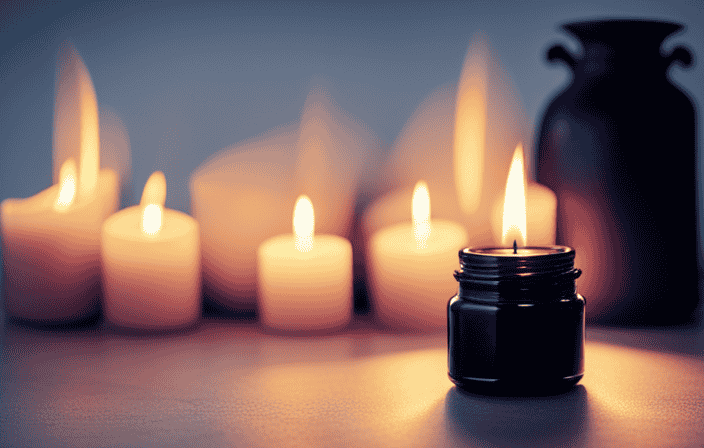
Step into the mystical world of black candle jars, where the soft illumination not only brightens a room but also touches the depths of your soul. These jars serve as a mystical tool, unlocking pathways to change, cleansing, and safeguarding.
They are more than mere objects; they are gateways to personal growth and spiritual connection. As we delve into the symbolism behind black candle jars, we embark on a journey of self-discovery, where shadows are embraced, negativity is released, and transformation becomes our guiding light.
Key Takeaways
- Black candle jars are associated with purification, protection, and banishing negative energy in one’s personal spiritual journey.
- The causes of black candle jars can vary, including the quality of wax, low-quality wick, improper burning techniques, and the impact of candle colors.
- Understanding the spiritual meaning and reasons for candle blackening is important for interpreting the symbolism behind black candle jars.
- Candle colors have specific meanings and associations, and selecting the appropriate color can enhance the desired outcome in spiritual practices.
What is it?
I know that black candle jars have a spiritual significance and can unlock symbolism and promote personal transformation.
Understanding symbolism is like peering into the depths of our souls, searching for hidden truths and untapped potential.
Just as the black candle jar holds the flickering flame, it also holds the power to ignite our inner fire. It symbolizes spiritual purification, a cleansing of the soul, and a release of negative energy.
When we embrace the black candle jar in our rituals, we invite protection and banish the darkness that may cloud our minds.
It is through this act of lighting the black candle jar that we embark on a journey of self-discovery and transformation. As the flame dances and casts its mesmerizing glow, we are reminded of the power within us to illuminate our path and create our own destiny.
Causes and Prevention
Understanding the causes of blackening in candle jars and implementing proper burning techniques can help prevent this issue. Prevention is key when it comes to maintaining the quality of our candles and maximizing their spiritual significance.
Just as in life, we must be mindful of our actions and choices to avoid negative outcomes. By taking the time to select high-quality wax and wicks, we can ensure a clean and pure burning experience. It is essential to pay attention to the fragrance oils we use, as excessive usage can contribute to blackening.
Furthermore, mastering proper burning techniques, such as trimming the wick and allowing the candle to burn evenly, will enhance the longevity of our candles and prevent blackening.
Let us strive to improve the quality of our candles, allowing their vibrant light to illuminate our spiritual journey.
Interpreting Meaning
Exploring the different interpretations of the meaning behind blackened candle jars enhances my understanding of their role in my spiritual journey. As I delve deeper into the symbolism associated with these jars, I uncover new layers of meaning and insight. Each blackened jar represents a transformation, a purification of the soul, and a shield against negativity. It serves as a visual reminder of the power I hold to banish darkness and embrace the light within.
To aid in my exploration, I have created a table that captures the essence of the spiritual growth that can be achieved through the interpretation of black candle jars:
| Symbolism | Spiritual Growth | Interpretation |
|---|---|---|
| Transformation | Embracing change | Letting go of old patterns and beliefs to make space for personal growth and evolution. |
| Purification | Releasing negativity | Cleansing the spirit of negative energy and fostering a sense of inner peace. |
| Protection | Shielding from harm | Creating a spiritual barrier to safeguard against external influences and negative forces. |
By understanding the diverse interpretations of black candle jars, I am able to harness their power and incorporate them into my daily rituals for spiritual growth. They serve as a constant reminder of the transformative journey I am on and the importance of embracing the symbolism they hold.
Candle Colors and Meanings
Selecting the appropriate color of a candle allows for a deeper connection to desired outcomes and enhances the effectiveness of spiritual practices. Candle colors hold significant meanings and can be used to amplify intentions in our daily rituals.
Combining candle colors is like blending different hues on a canvas, creating a masterpiece of energy and intention. Just as an artist combines shades to evoke specific emotions, we can combine candle colors to enhance our intended outcomes.
For example, combining a black candle, symbolizing protection and banishing negativity, with a white candle, symbolizing purity and clarity, can create a powerful synergy in our spiritual journey.
It is through this intentional blending of colors that we find ourselves truly immersed in the transformative power of black candle jars, unlocking their symbolism and experiencing personal transformation.
Impact on Spiritual Journey
Experiencing the impact of black candle jars on my spiritual journey has been profound and transformative.
Exploring the symbolism behind these jars, I have discovered a powerful tool for harnessing transformation in my life. Like the darkness that precedes the dawn, the black candle jars represent the necessary journey into our own shadows and depths.
As the candle burns, it purifies, banishing negative energy and paving the way for personal growth. Just as the black candle jars release their black residue, I too release the negativity and limitations that no longer serve me.
Through this process, I am able to ground myself, finding stability and strength amidst the chaos of life. The black candle jars symbolize the journey of transformation, reminding me that from darkness comes light, and from ashes rises the phoenix.
During my spiritual journey, I have found that incorporating black candle jars has had a profound impact on my growth and transformation. Exploring the symbolism behind these jars has allowed me to delve deeper into my inner world, unlocking hidden aspects of myself and embracing transformation.
The black candle jars serve as powerful tools, symbolizing the journey of purification and protection. They act as a mirror, reflecting the shadows within, urging me to release negativity and embrace the light. As I light the candle and watch the black residue slowly melt away, I am reminded of the power of transformation and the constant shedding of the old to make way for the new.
Embracing the spiritual significance of black candle jars has allowed me to align my beliefs and values, grounding me in my journey towards self-discovery and personal growth. With each candle ritual, I am reminded of the power of intention and the importance of focus.
These black candle jars have become a constant companion, enhancing my spiritual connection and deepening my understanding of myself and the world around me.
Incorporating black candle jars into my daily rituals has deepened my spiritual connection and heightened my understanding of myself and the world around me.
Exploring the symbolism behind these jars has allowed me to embrace personal transformation in a profound way. The black residue left behind after burning a candle represents the release of negativity and the purification of my spirit. It is a reminder that through shadow work and grounding, I am able to banish negative energy and protect myself from its influence.
Each time I light my black candle jar, I am reminded of the transformative power within me and the importance of releasing what no longer serves me. It is a symbol of strength and resilience, guiding me on my spiritual journey towards growth and enlightenment.
By embracing the spiritual significance of black candle jars, I have unlocked a deeper understanding of myself and the world, allowing me to walk the path of personal transformation with intention and purpose.
Using black candle jars in my daily rituals has greatly deepened my connection to the spiritual realm and enhanced my personal growth journey. Exploring the symbolism behind these jars has allowed me to tap into a deeper understanding of myself and the world around me.
Each time I light a black candle, I am reminded of the power of intention and the importance of focus in my spiritual practices. The black residue left behind after burning represents the transformation and purification that takes place within me. It is a visual reminder of the negative energy and emotions that I release, allowing space for positivity and light to enter.
Through my connection with these rituals, I have found a sense of grounding and protection, enabling me to navigate life’s challenges with grace and resilience.
Frequently Asked Questions
Are there any specific rituals or practices associated with using black candle jars in spiritual journeys?
Exploring the symbolism of black candle jars in different spiritual practices, I’ve discovered rituals that enhance personal transformation. Through my own experiences, I’ve witnessed the power of intention and the profound impact of using black candle jars on my spiritual journey.
Can black candle jars be used for manifesting positive outcomes, or are they primarily used for banishing negativity?
Black candle jars have a transformative power beyond banishing negativity. By harnessing the power of intention, they can manifest positivity and guide us on a journey of personal growth and spiritual enlightenment.
How can one determine the quality of wax and wick when purchasing black candle jars?
When purchasing black candle jars, I focus on determining the quality of wax by looking for a smooth texture and clean burn. I also check the wick quality by ensuring it is sturdy and centered for an optimal candle-burning experience.
Are there any specific candle burning techniques or care instructions that can help prevent blackening of the jar?
To prevent blackening of the jar, I’ve discovered some candle cleaning techniques that are truly magical. By regularly trimming the wick, avoiding drafts, and cleaning with vinegar, I keep my candles shining bright, preventing soot buildup.
Can the spiritual meaning of black candle jars vary across different cultures or belief systems?
Cultural variations and belief system influences can shape the spiritual meaning of black candle jars. Like diverse colors blending on a canvas, our interpretations intertwine, creating a tapestry of symbolism that reflects our unique spiritual journeys.
Conclusion
As I reflect on the profound journey of the black candle jar, I am reminded of the power it holds to transform our beings.
Like a guiding light in the darkness, this sacred vessel purifies our souls, banishing negativity and protecting our spirits.
Its symbolism is a gateway to personal growth, a path towards understanding and connection.
With each flicker of its flame, we embark on a spiritual quest, embracing the colors that represent our intentions.
Let us unlock the secrets of the black candle jar and ignite the fire of transformation within ourselves.
Say hello to Cypress, the soulful wordsmith behind the insightful articles at OurMindAndBody.com. Cypress is a gifted writer who weaves words with grace and precision, using language as a powerful tool to inspire, heal, and uplift the spirits of readers.
With a background in literature and a passion for personal growth, Cypress brings a unique perspective to the world of well-being and spirituality. Having experienced the transformative effects of meditation and yoga firsthand, Cypress is deeply connected to the essence of these practices and their potential to enrich lives.
-

 Personal Growth2 months ago
Personal Growth2 months agoThe Power Of Kindness: Cultivating Happiness, Connection, And Personal Growth
-

 Meditation1 day ago
Meditation1 day agoUnderstanding Spiritual Attacks: Types, Signs, And Protection
-

 Aura1 week ago
Aura1 week agoUnderstanding The Grey Aura: Balance, Neutrality, And Personal Growth
-

 Spirituality3 months ago
Spirituality3 months agoThe Power Of Spiritual Connection: Definition, Importance, And Ways To Achieve
-

 Spirituality2 months ago
Spirituality2 months agoStarting Your Spiritual Journey: Self-Reflection, Growth, And Connection
-
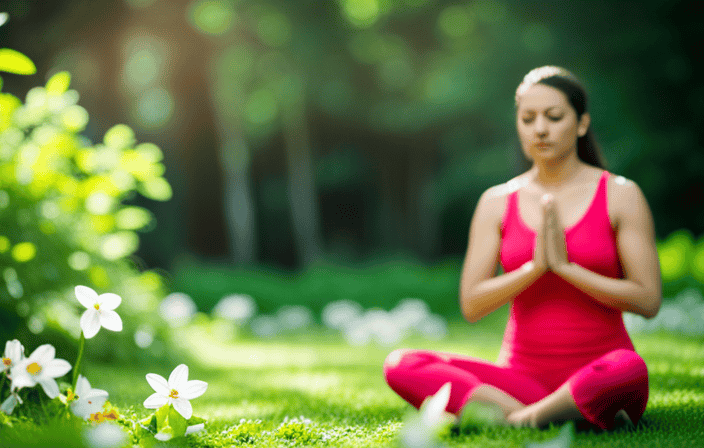
 Spirituality3 months ago
Spirituality3 months agoConnecting Spirituality And Daily Life: Embracing Universal Values
-

 Spirituality3 months ago
Spirituality3 months agoThe Mystical Realms: Exploring Spiritual Dimensions
-
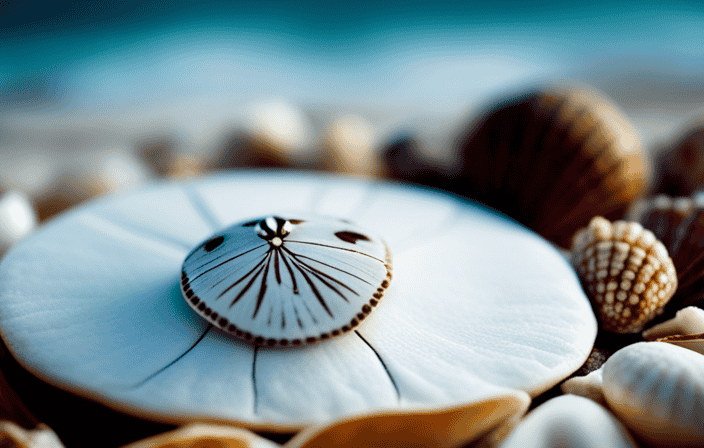
 Meditation3 weeks ago
Meditation3 weeks agoThe Symbolic Significance Of Sand Dollar: Spiritual Meanings And Cultural Connections
